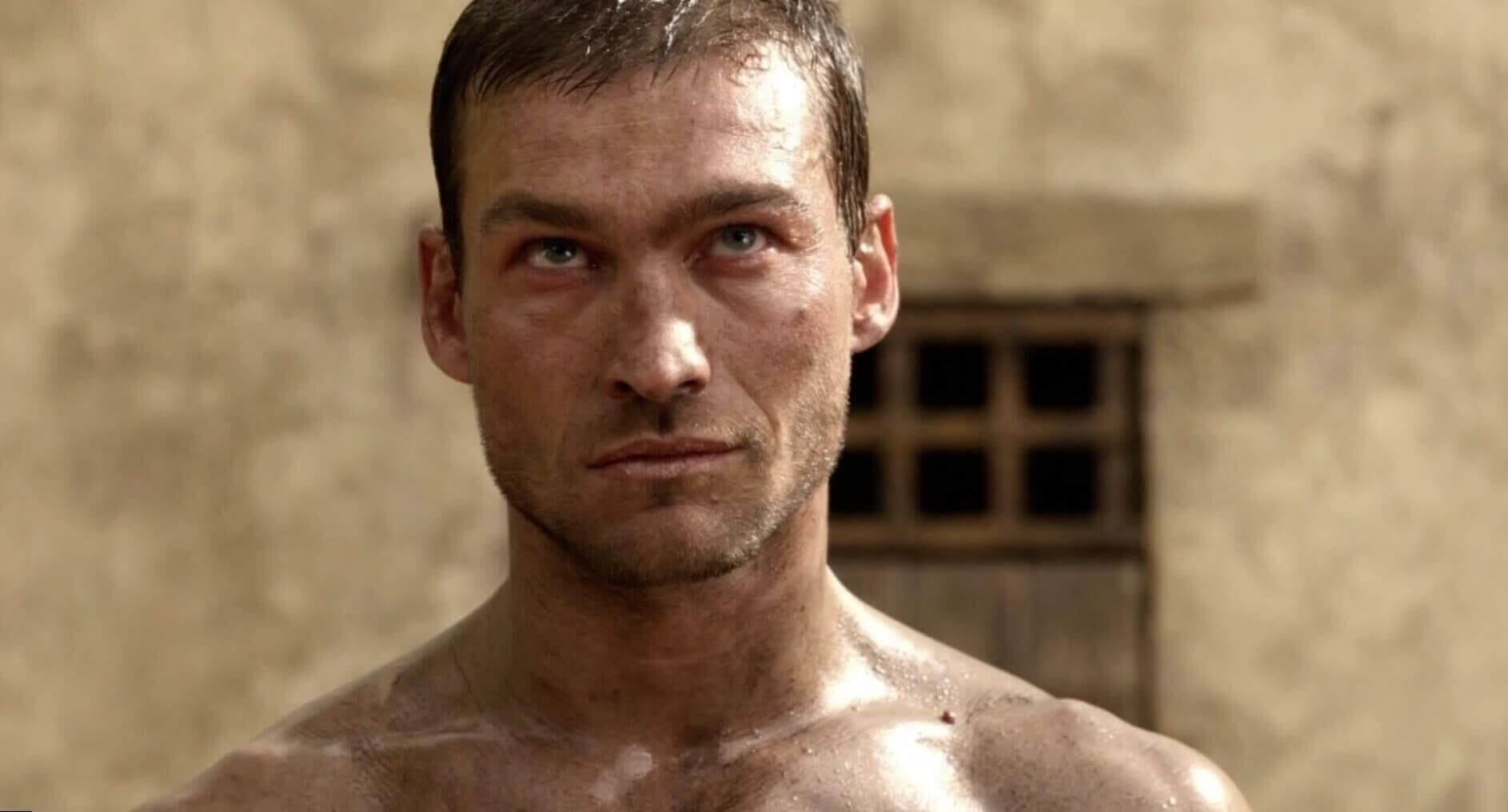A Look Back at Starz’ Spartacus
My dad and I watched together several TV shows together over the years. Usually, it was sci-fi series like the Star Trek franchise or Sliders. However, we were also big into history, checking out shows like Rome and, occasionally, some things on The History Channel. When Spartacus: Blood and Sand premiered on Starz, we were both pretty excited. At first, I was a bit surprised that this was going forward; the legacy of Kirk Douglas’ iconic take on the character isn’t an easy thing to live up to. What was it about this Sam Raimi-produced show that made everyone excited and served as a worthy successor to the 1960 iteration? Let’s take a look.
Spartacus: Blood and Sand opens on a battle in the arena, the crowd in an uproar as our titular character sits chained underneath the arena awaiting his turn. We then flash back to how he got into this position as the Romans – led by Legatus and, subsequently, Praetor Gaius Claudius Glaber (played by Craig Parker, who, at the time, was pulling double duty on another Raimi production, Legend of The Seeker, as Darken Rahl) – warn the Thracians that the Getae will be advancing and that they should join their ranks something Spartacus convinces his fellow Thracians to go along with. After saying goodbye to his wife, Sura (played by The Astronaut Wives Club and The John Campea Show’s Erin Cummings), he goes to war. Our hero soon becomes disillusioned after Glauber wants the Thracians to attack Greece, and this disagreement ends in bloodshed. After Spartacus reunites with his wife, saving her from an attack by the Getae, an enraged Glaber separates the two and sentences our hero to die in the arena.
Just before he is killed, the Laništa Quintus Batiatus (played by The Mummy’s John Hannah) requests that he take Spartacus to his kudus to train him as a gladiator, an effort that he hopes will “gain favor” with the Legatus and earn his patronage. Now, Spartacus must gain the respect of his brothers, particularly the champion Crixus (played by Manu Bennett), all the while begrudgingly trusting his new master to reunite him with his wife, something that is later revealed to be a lie as Batiatus orchestrates her murder. Threaded through Spartacus’s plight are the machinations of House Batiatus as both husband and wife seek power, much to Crixus’ chagrin, who is forced into a relationship with Lucretia while being in love with Navia (played by Lucifer’s Leslie Ann Brandt in the first two seasons and later Cynthia Adlai Robinson in Vengeance and War of the Damned). The season culminates with Spartacus and Crixus teaming up with the other slaves to destroy House Batiatus.
After a short prequel entitled Gods of the Arena (detailing Batiatus’ rise to power as well as origins for a few other characters like Crixus), season 2, Spartacus: Vengeance, sees Spartacus and the others on the run from Rome as they try to free as many slaves as they can. Meanwhile, Glaber must deal with the fallout in Capua while his marriage to Ilthia deteriorates. The end of the season brings the final battle between Spartacus and Glaber, with the latter finally meeting his end. While this might have been a good stopping point for any other show, Starz delivered one final chapter for their flagship series as Spartacus and his fellow slaves fought against a young Julius Caesar, played by Todd Lasance, and Simon Merrells’ Marcus Crassus. At the series’ end, the name “Spartacus” is lost to legend, the final shot of the ending credits poetically returning to an iconic season 1 moment where Whitfield proclaims, “I am Spartacus.”
The series was initially billed as being for the graphic novel generation, and you could see that in every frame of the narrative, as it followed in the footsteps of the Zack Snyder film 300, both in terms of aesthetic and, in one case, casting, with Peter Mensah playing Oenomaus. Every single actor played their roles fantastically, embracing the unique cadence of their rich characters and allowing the audience to believe in the world they were creating on-screen – something that Starz has continued to do with shows like Da Vinci’s Demons and Black Sails. Every week was like a visit to another time, the height of gladiator battle raising the tension and, at times, almost bringing to mind the wrestlers of today. Being on Starz, creator and executive producer Steven S. DeKnight was able to realize his vision to its greatest potential, and was arguably a precursor to the Golden Age of Television, showcasing the benefits of long-form storytelling. Initially, DeKnight, – known for his work on Smallville and various Joss Whedon series – had big plans for Spartacus, with a 5-7 year plan and star Andy Whitfield committed to at least six seasons. That all changed when Whitfield was diagnosed with cancer, putting production of season 2 on hold to allow the star time to recover, thus giving way to the prequel, Gods of the Arena. When Whitfield ultimately succumbed to his illness, the decision had already been made to recast the role, with Whitfield’s blessing. Arrow’s Stephen Amell was on the shortlist to succeed Whitfield, with a prospective 3-year deal on the table.
Ultimately, Liam McIntyre was cast, and the show went for two more seasons. At one point, there were plans to build a spinoff around Todd Lasance’s Caesar, as that version of the character hadn’t really been explored on-screen. However, these plans never came to fruition, the reasoning ultimately coming down to budgetary concerns. Despite this, the show is still remembered fondly, and a lot of that comes to all the auspices involved. While DeKnight would go on to work for Netflix on shows like Daredevil and, briefly, the Mark Miller adaptation Jupiter’s Legacy, many of the other cast and crew would join the CW’s Arrowverse, with the former undefeated Gaul Manu Bennett joining as Deathstroke opposite Amell, giving fans the briefest glimpse of what could have been as a result. In addition, McIntyre and Robinson came on to portray Mark Mardon on The Flash and Amanda Waller on Arrow, respectively, while Nick E. Tarabay makes an all-too-brief cross-show appearance as Captain Boomerang. The producers were so enamored with the talent behind Spartacus that even some of the behind-the-scenes crew joined the show, particularly Todd Helbing, who will be focused on helming his own Arrowverse show in Superman & Lois. This was truly a special show, so it’s been great to see so many Spartacus alumni contributing to a whole new TV universe.
Despite an early end and a production beset by tragedy, Spartacus was a show that allowed Starz to step up their original programming game and give fans a fresh vision of Ancient Rome. With great performances and a visceral aesthetic, I’ll always revisit Capua and these legends of the arena.
Comments (1)









Love Spartacus. Bought all the seasons. Miss beautiful Andy Whitfield. Actually every one on that show was HOT!